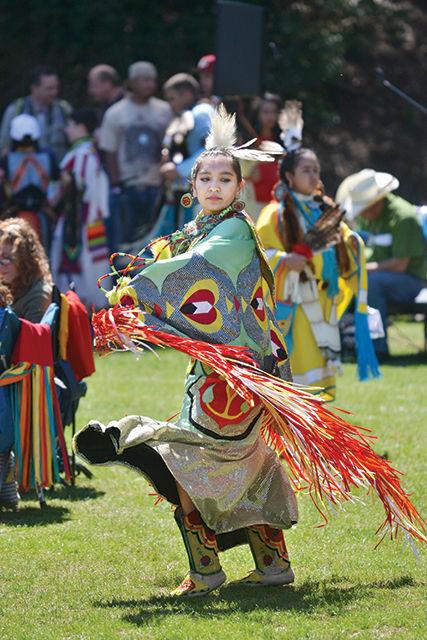Aside from Thanksgiving traditions and preparing for finals, November also harkens Native American Heritage Month for the NC State Community.
Ian Stroud, assistant director of the Office of Native American Student Affairs (ONASA), said distinguishing the number of Native American students on campus is a difficult task. Stroud said 129 students at NC State solely identify their ethnicity as Native American, while around 300-400 students consider themselves ‘Native American plus,’ meaning they only identify as part indigenous.
Stroud identifies his tribal affiliation as Navaho, Cherokee and Creek. Juan Santiago, a junior studying parks, recreation and tourism management, member of the Native American Student Association and president of the American Indian fraternity Phi Sigma Nu, identifies as a member of the White Mountain Apaches.
“A big thing with students who grew up Native American is “culture shock”, going from the community where they grew up where everyone identified as Native American then onto a college campus can be a tough transition,” Santiago said.
Stroud explained the ONASA provides and implicates programs that provide cultural awareness among the NC State community.
A first-year initiative symposium encourages students to come to campus early and get a close-up cultural introduction to NC State, according to Stroud. Here, students can participate in academic workshops where they learn about expressing their own cultural identities.
North Carolina has the largest population of Native Americans east of the Mississippi, with eight indigenous tribes: Occaneechi, Sappony, Haliwa-Saponi, Meherrin, Coharie, Waccamaw Siouan, Lumbee and Cherokee.
Stroud said he works with six Native American student organizations on campus, and NC State boasts four Native American Greek organizations, the most of any university in the state.
NC State is also hosting a powwow on March 21, which will commemorate the 25th anniversary of the event.
Santiago said an exciting event this year was a Native American student art show, which took place Nov. 13. This show presented Native American art, regalia and native portraits. Santiago said it sought to include not only NC State students, but also the Native community around the state.
“Tomahawk”, a Native American food showcase with a spin on modern pop culture, also contributed to the Native American Heritage Month agenda. Santiago explained that it generated a lot of interest from the Native American community as well as the NC State community in general.
“Culture is identity,” Stroud said.
Stroud explained how college is a difficult precipice for a lot of students coming from rural areas and how it can be both challenging and exciting.
“If students can express their cultural identity freely on campus than this will ease their transition,” Stroud said.
Stroud explained the Office of Native American Affairs wants students to be able to say, “I’m a member of the Wolfpack,” and not “I’m just a number.”
According to Stroud, there is often only one Native American student in a class because the community is so small in numbers, which makes it easy for them to feel alone. Stroud expressed the importance of making Native American students aware of the indigenous community.
“That sense of isolation can be stressful,” Stroud said. “It is imperative that we give them the place and opportunity to express themselves and their cultural identity.”
Stroud also said gaining a broader perspective of Native American culture is something he feels is important.
“Many don’t know about Native American culture; they have misinterpretations and not education about indigenous culture,” Stroud said.
The overall goal of the Office of Native American Affairs at NC State is to grow the program and acquire a larger Native American community here on campus, according to Stroud.
Misappropriation of Native American Culture is prevalent in pop culture—mascot issues, with the recent Washington Redskins controversy for example. Stroud said the Office of Native American Affairs has to choose its battles when it comes to social issues.
“Racism is racism,” Stroud said. “We need to address it no matter how large we think the impact is on campus. On a personal level, I don’t see the celebration of Native American culture, I see the profit. We lose a sense of identity because we are often seen as a mockery—a franchise.”








